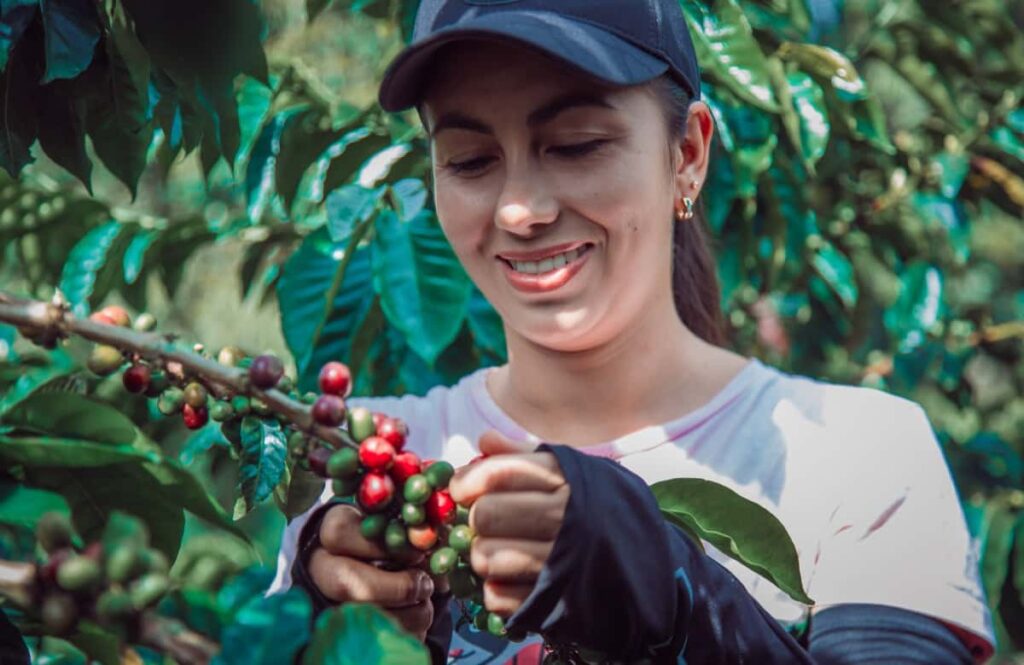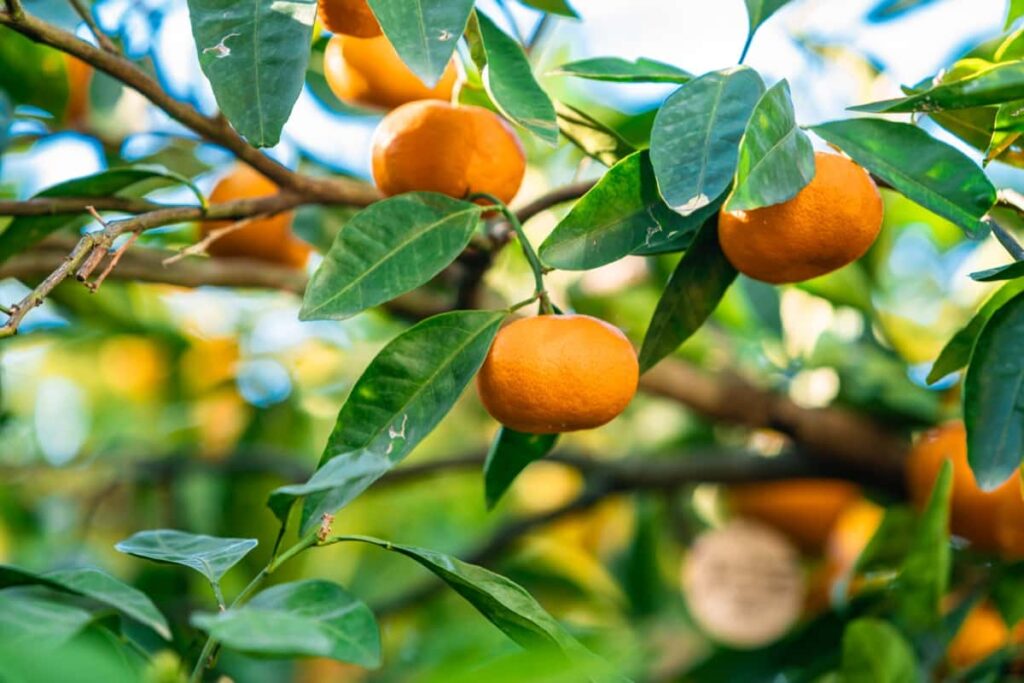Organic farming can be up to 35% more profitable than conventional farming when farmers receive a premium that certifies the product. Analysis of the cost-benefits of such factors compels the authors to prove that organic farming is more profitable than conventional agriculture. According to the principles of organic farming, the products grown are good, have a positive effect on our bodies, and are profitable for farmers. When going into organic farming, the first thing to consider is the island or location.
Organic farming is a technique that involves the use of biological materials and the avoidance of chemicals to maintain the natural health of the soil. Organic farming is the safest way of practicing agriculture to protect health, the ecosystem, and the environment. An organic production system that avoids or eliminates using synthetically mixed fertilizers, pesticides, growth regulators, genetically modified animals, and livestock foods. Let’s find out how to make excellent income returns with organic farming.
Organic Farming Profits Per Acre in India
Know What Makes an Organic Farmer Successful
Identify Resources: When starting organic farming, identify your resources first because they will be helpful. Try to get knowledge from existing organic farmers and patrons and research the type of your land and the crops that are best suited for it.
Plan Crop Rotations: This is an essential tool in managing organic farming. Choose crops wisely according to climatic conditions and soil, which will affect the soil’s fertility.
Look at Pests and Ways to Control Them: Pests are a big challenge in organic farming. Choosing ways to control them according to the crops grown and using fertilizers and mulching with proper ploughing at the beginning can stop the growth of pests. Due to climate change, organic farming has gained a prominent place worldwide. The Government of India promotes organic farming through various schemes under the National Mission on Sustainable Agriculture (NMSA).
The government has introduced Advanced Krishi Vikas Yojana (PKVY) and Organic Value-Added Development (OVCDNER) schemes under NMSA to promote organic farming in the country. Under the scheme, the state governments will help the farmers by offering financial assistance for a maximum of one hectare of land on a cluster basis for every 20 hectares. With a little effort and an understanding of nature, any farmer can earn at least Rs 10 lakh per annum.
Cash Crops for Small Organic Farms to Earn Big Profits
Coffee: Coffee is an excellent example of a crop that costs more in terms of organic production than conventional, but in terms of net profit, traditionally grown because of the willingness of the guardians to pay a premium. It makes it a real organic cash crop.
In case you missed it: Vertical Farming in the UAE and Saudi Arabia: How to Start, A Step-by-Step Guide

Cardamom: Cardamom is another essential spice grown in our state by organic methods that help them retain all the natural benefits.
Mandarin Orange (Indian Kinnow / Hybrid): Mandarin Orange is one of India’s most commonly grown fruits, especially in Sikkim, where it is grown on organic farms, just like other fruits and vegetables in the region.
In case you missed it: Zone 6 Gardening Guide for Vegetables, Fruits, Herbs, Flowers, and Month-to-Month Calendar

Ginger: Furthermore, organic ginger is known for its immense health benefits – from anti-inflammatory to antibacterial properties.
Turmeric: Turmeric is another popular organic form of root vegetable turmeric, which is more common and recognizable in its dry and powder form.
In case you missed it: Earning 10 Lakh From Lemongrass Farming: How This Farmer Turned Rich by Growing This Medicinal Plant

Other crops grown under organic farming: Organic farms are generally more profitable. Almost all seasonal vegetables, fruits, paddy, wheat, mushrooms, and flowers are grown organically. Some examples are Eggplant, Tomato, Marigold, Chili, Cabbage, Amaranth, Spinach, Coriander, Onion, Chili, Eggplant, Cabbage, Ladies Finger, Beans, Beetroot, Carrot, Marigold, Peanut, etc.
Practices to Make Excellent Income/Profit/Returns with Organic Farming
Organic farming is an agricultural approach that supports healthy products that can harm humans and nature. These include but are not limited to industrial pesticides, insecticides, fertilizers, clones, GMOs, chemicals, hormones, growth boosters, etc. Composting, mulching, and bio-fertilizers are examples of organic methods that can help promote healthy crop growth.
Vermicomposting is another excellent way to provide the soil with essential organic nutrients. There are different forms of inorganic fertilizers, nitrogen fertilizers and phosphorus fertilizers. Examples of organic fertilizers are agricultural waste, livestock manure, and municipal sludge. Green manure, fertilizers, and bio-fertilizers can increase soil fertility.
Weed Management
Chemical herbicides cannot be used in organic farming. Therefore, weeding can only be done manually. Different cultural methods, such as tillage, flooding, and mulching, can be used to manage to mourn. Cover crops can be planted when the ground has followed to suppress weeds and improve soil quality.
Pests can be controlled by using plant-based products like neem extract and neem oil. Biological agents such as fungi, insects, bacteria, and viruses can also kill insects and prevent diseases. Also, animal extracts like fish oil and spinocin from bacteria can kill insects. Viral Bodies and Polyhedral bodies can also kill many lepidopteran insects.
Organic Methods of Pest Management
Use of varieties of crops that are resistant to pests and diseases. It biologically attacks insects by introducing or increasing populations of their natural predators, parasites, or infections and changing other environmental conditions to make the habitat less suitable for pests.
Is Organic Farming More Profitable?
Generally, organic farming is more profitable compared to conventional agriculture. According to the principles of organic farming, the products grown are good, have a positive effect on our organisms, and are profitable for farmers. An analysis of the cost-benefits of such factors has led the authors to argue that organic farming is more profitable than conventional agriculture.
Organic food production also requires more manpower, as parasites are mechanically managed, and this represents a cost on the one hand and contributes to the survival of rural economies. On the other hand, it provides an additional economic benefit. In developing countries, the profit margins for organic farms are higher because their products and prices are higher than their non-organic counterparts.
Yields in Organic Farming
Yield in well-established organic farms is often lower than conventional. However, in wet areas, traditional production is higher than organic, but organic production is higher in arid regions. In developing countries, organic production is generally higher than conventional but much higher in less favourable conditions (e.g., drought).
If yield comparisons are made keeping in mind the quality of the target crop, it can compensate for the low production of organic farms in industrialized countries. When comparing the relative yield and composition of vegetables in 12 years, conventional fields yield 24% more, but organic vegetables have 28% more dry matter. In addition, organic products have high levels of vitamins, minerals, healthy fatty acids, and phytonutrients.
Cost of Production for Organic Farming
The cost of production for organic farms is generally lower. Organic farms produce less than conventional ones but are offset by lower production costs and higher prices for organic products.
In case you missed it: Best Organic Fertilizers to Feed Plants: DYI for Potted, Backyard, Indoors, and Terrace Garden

Organic Farming Key to Doubling Farmer’s Income
Organic methods produce food grains without harming the environment. Efforts are being made to ensure more organic farming for farmers to achieve better yields and higher profits. Some are wondering how organic agriculture will help farmers double their incomes. It is possible. That’s why we’re promoting organic farming more scientifically. While the government was encouraging farmers to adopt organic agriculture through programs like Pragati Krishi Vikas Yojana (PKVY), it also needed the help of stakeholders at all levels.
We need to revolutionize organic farming like the green revolution. Government policies alone will not work. Society and all stakeholders must come forward and play their part. However, in monitoring such cultivation and schemes, There is a need for an organic policy and organic cells and necessary steps to be taken to discourage the use of fertilizers and pesticides. Zero Budget Natural Farming (ZBNF) is a farming form promoting methods.
Zero budget Indigenous cow dung, cow urine etc., are used in natural farming for crop development. Encourage this type of farming to control organic pests, promote mixed crops, etc. Sikkim, India’s northeastern state, is an organic state with 75,000 hectares under organic farming. Another northeastern Indian state of Meghalaya is considering converting 200,000 hectares of land into organic farming. In Kerala, more than 100,000 farmers are adopting organic farming methods.
The Prospects of Organic Farming
Organic farming is practiced in innumerable rural farming communities in India. Organic products are in high demand even in developing countries like India. People are now aware of the quality of food, a process that affects soil health. Organic products also have the potential to generate revenue.
Indian farmers have gained insights through their knowledge, observations, and methods of maintaining soil fertility, which is highly effective in strengthening the organic farming system and the country’s economic development. The progress made in organic agriculture/farming is commendable. Today, India is the world’s largest organic producer.
Organic Farming Profit per Acre
Some crops yield more under organic farming, but some varieties yield less. Growing organic vegetables costs approximately Rs. 1,70,000 (This includes land preparation, planting material, fertilizer, organic fertilizer, irrigation, labour charges, etc.)
In case you missed it: Hydroponic Nutrient Chart: For Vegetables, Herbs, and Flowers

- The per acre income of organic tomatoes is about Rs. 3 lakhs
- Profit = income – total cost = Rs.3,00,000- Rs. 1,70,000 = Rs. 1,30,000
- Therefore, the profit is Rs. 1,30,000 per acre for organic tomato cultivation
Note: Profit change will be based on factors such as plant selection, selected location, soil, organic fertilizer, etc.
- Crops Grown in Summer Season: Best Choices for Summer Gardening
- Organic Pest Control for Tomato Farming
- How to Maximize Sheep Farming Profit
- Broccoli Varieties: Choosing the Right Cultivars for Your Farm
- How to Raise Pigs in Your Own Backyard: A Comprehensive Guide
- Budget Friendly Sheep Shed Ideas: Cheap and Low-Cost Tips
- How Much Do Cattle Farmers Make: Revenue Streams in Cattle Farming
- Management Pests and Diseases in Your Cotton Field
- Sheep Farming Business Plan for Beginners
- Aquaponic Farming at Home: A Step-By-Step Guide
- Profitable Village Farming Business Ideas in 2024
- High-Yield Aquaculture: Fast-Growing Fish for Farming
- Effective Fish Pond Construction Techniques for Beginners
- Irrigation and Water Management in Pineapple Farming
- Blossom to Harvest: Mastering Flowering and Pollination in Papaya Farming
- Pig Fattening Essentials: From Selection to Sale for Beginners
- Raising Wagyu Cattle: A Complete Guide for Premium Beef Production
- Soil Types and Their Water Holding Capacity
- Optimizing Irrigation Schedules for Coconut Groves for Enhanced Yield
- Espresso Your Garden: Coffee Grounds for Healthier Acid-Loving Plants
- The Best Soil Mix for Snake Plants: How to Mix Your Own Snake Plant Soil
- Green Thumb Success: Expert Tips for Cultivating Greenhouse Beans All Year Round
- Bloom All Year Round: The Ultimate Guide to Indoor Hyacinth Care
- Eco-Friendly Gardening: How to Make Liquid Fertilizer from Kitchen Waste
- Ultimate Guide to Grow Anise in Pots: Explore Seed Propagation to Harvesting
- Guide to Raising Chester White Pigs: Discover Breed Facts to Growth Management
- Mastering the Elegance: The Ultimate Guide to Weeping Cherry Tree Care, Planting, and Maintenance
- Ultimate Guide to Planting Garlic in Grow Bags: Growing Strategies for Beginners
- How to Fix Spider Plant Leaf-Related Problems: Natural and Organic Remedies
- 10 Reasons Why Your Tulsi Plant is Shedding Leaves: Home Remedies and Solutions
- Optimizing Growth and Yield: The Advantages of Palm Bunch Ash Fertilizer
- Utilizing Neem Oil Extract as a Natural Pesticide for Hydrangea
- From Soil to Harvest: Various Ways in Which Farmers Can Use AI Tools
- Steps to Encourage and Induce Citrus Flowers: A Comprehensive Guide
- How to Fix Snake Plant Leaf-Related Issues: Natural and Organic Remedies
- Transform Your Garden into a Fragrant Oasis with Raat Ki Rani (Night Blooming Jasmine)
